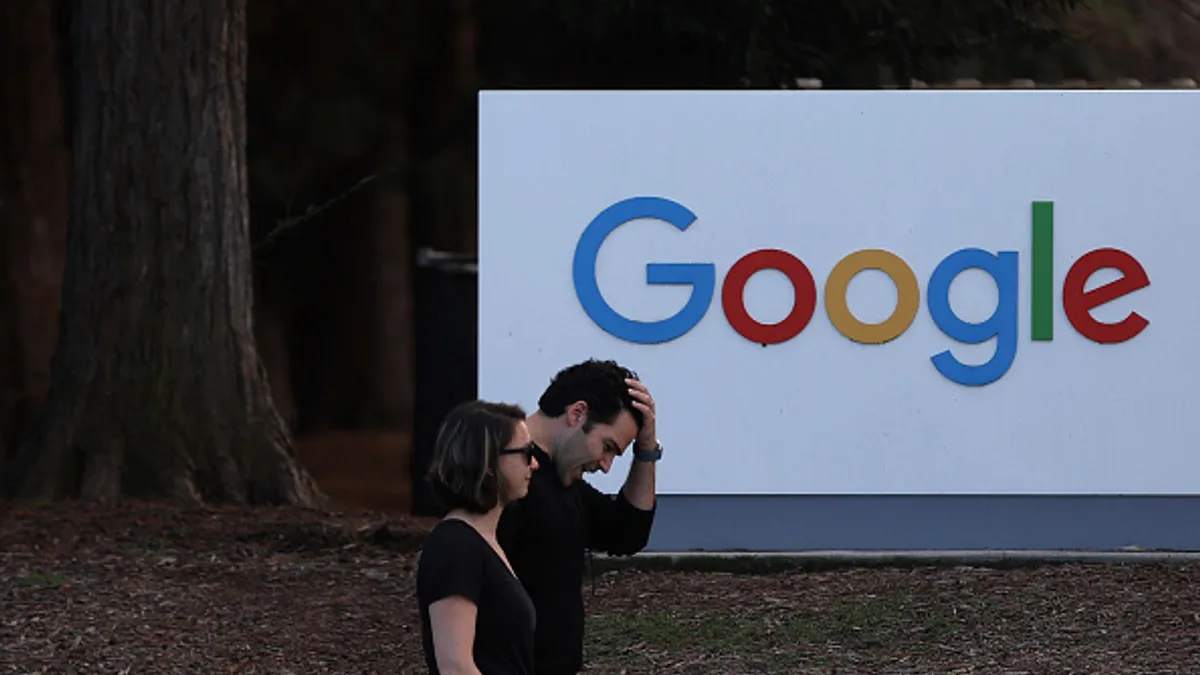Dive Brief:
- Antitrust regulators in the Department of Justice will ask Judge Amit Mehta of the federal District Court in the District of Columbia to require Google to sell its Chrome browser to break its monopolistic hold on Internet searches and online ads, Bloomberg Law is reporting based on undisclosed sources within DOJ.
- “Top Justice Department antitrust officials have decided to ask a judge to force Alphabet Inc.’s Google to sell off its Chrome browser in what would be a historic crackdown on one of the world’s biggest tech companies,” the publication said in a Nov. 19 report.
- The company in response to the news called the proposal radical and says it goes beyond the legal issues in the case. "The government putting its thumb on the scale in these ways would harm consumers, developers and American technological leadership at precisely the moment it is most needed,” Lee-Anne Mulholland, the company’s vice president of regulatory affairs, said in an email to Legal Dive. DOJ didn’t immediately respond to a request for comment.
Dive Insight:
In August, Mehta found Google guilty of operating as an illegal monopoly in internet searches and online ads by the way it cut deals with big device makers like Apple to give it control over channels for distributing its browser technology.
That dominance has enabled the company to accumulate and use data to improve its technology at the expense of rivals, the court found.
Google commands about 90% of the global search engine market, October data from Statcounter shows, and Chrome is the leading global browser with almost 65% of the market, according to October Similarweb data.
DOJ officials in October signaled in a court filing that they were thinking about recommending structural changes to Google as an antitrust remedy. In addition to seeking the sale of Chrome, according to the filing, they were thinking of putting some kind of block on Google’s ability to enter into default agreements, pre-installation agreements, and other revenue-sharing agreements with companies to prevent it from having search exclusivity on other companies’ devices.
It was also looking at ways to cut Google’s advantage over others in the performance of its search results. It was using its search dominance to generate the kind of data that was, in a self-perpetuating cycle, solidifying even more its search dominance. To offset this advantage, DOJ was considering requiring the company to make its data available to others through a licensing arrangement.
One proposal DOJ was considering, but is now not considering, according to the Bloomberg report, is having Google sell off Android. Antitrust officials “pulled back” from that remedy, the report said.
Analysts said in October the idea of breaking up Google is probably a non-starter. Requiring the company to take more limited action, like selling Chrome, though, might be more palatable. A more realistic remedy is DOJ’s proposal to end the exclusive agreements the company has with Apple and others and to make it easier for people to use search engines other than Google’s, CNBC reported last month based on the remedies that were applied some 25 years ago when DOJ went after Microsoft on antitrust grounds in the browser market.
Jeff Cross, counsel at Smith, Gambrell & Russell, says a key remedy is the licensing requirement DOJ proposed in its October filing. “Judge Mehta found factually that the Google search engine was a superior product,” he told Legal Dive in an email. “He specifically found that in the past, when original equipment manufacturers and others would hold so-called beauty pageants to determine which search engine to use, Google always won. Judge Mehta made the point that the data was so important to Google that it retained individuals' search data for up to 18 months.... Requiring Google to license the data to other search engine companies would allow them to be more competitive and would restore competition in the marketplace."
The election of Donald Trump could change the calculus as well. During the campaign Trump stopped short of calling for Google’s breakup, although he suggested some remedy is necessary.
Google has "a lot of power" that he would do “something about,” he said in an interview at the Economic Club in Chicago in mid-October. But he stopped short of calling for the company’s breakup.
"I give them a lot of credit,” he told Bloomberg. “They've become such a power. How they became a power is, you know, really the discussion. At the same time, it's a very dangerous thing because we want to have great companies — we don't want China to have these companies. Right now, China is afraid of Google."
Mehta is expected to hold a hearing on the appropriate remedy in the spring and to issue his ruling in the fall.
Sundar Pichai, CEO of Google and its parent company Alphabet, has said the company will appeal Mehta’s verdict. “This process will likely take many years,” he said in October on the David Rubenstein show. “I’m confident … we’ll do well in the long run.”











